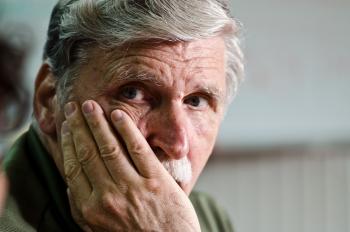Few of us could have been surprised by Romeo Dallaire's moving article in The Globe this weekend commenting on the tragedy of Lionel Desmond, the former soldier with PTSD who murdered his family then took his own life. Lt.-Gen. Dallaire, now retired, is surely among Canada's most admired citizens, if not the most admired. I include myself among his ardent fans, and I hope that 2017 might be the time he finally escapes from the demons that have haunted him for the past 23 years. Lionel Desmond's ghastly case only stirs up those ghosts.
Ever since the 1994 genocide of the Tutsi of Rwanda, which he experienced as head of the military mission (UNAMIR) assigned to Rwanda by the UN, Gen. Dallaire has been a sick man, a mentally unhealthy man. Actually, it's a miracle that anyone involved in the genocide in any way has been spared falling to PTSD. And in fact, many others have been afflicted, not least Rwandans themselves. But Gen. Dallaire has been, without question, the highest profile non-Rwandan victim.
Now he has written of his years as captive of this awful malady, in what must be one of the most vivid and graphic first-person accounts of living with, and often wanting to die, from PTSD. This is Gen. Dallaire's third book since Rwanda, and for my money it's the best. For his legion of admirers, it's a painful but necessary read.
Waiting for the First Light: My Ongoing Battle With PTSD -- the title refers to his desperate longing, night after night, for daylight to come and save him from further nightmares -- makes us understand, even feel, the torment he endured on a virtual daily basis for the past two decades and more. Yet few really knew what he faced after his always-crowded days were through. The nights brought the anguish back. Haunted by memories, hunted by guilt, in private this suffering hero endured on pills, booze and thoughts of suicide. He came close.
I saw it myself on several occasions. We became friends about 15 years ago, five years after the genocide, when he read the report I wrote for a special commission on Rwanda appointed by the Organization of African Unity. I called it "The Preventable Genocide," which is exactly what Gen. Dallaire knew it could have been had he only a few thousand more trusted troops. And of course he was pleased that he emerged in the report as the only unsullied character in the terrible ordeal.
We were together at a small gathering of the world's genocide experts in the British Midlands, when I watched him clearly flag and lose his bearings as his panel continued into the night. It was eerie, even shocking, to witness him disappear into himself where no one could remotely follow.
A couple of years later we were both in Rwanda for the 10th anniversary of the genocide. It was his first time back since 1994. He was there to film material for documentary maker Peter Raymont's Shake Hands with the Devil, based on Gen. Dallaire during the genocide. I travelled with their team as an observer for some time, and watched again as Gen. Dallaire became distraught as fatigue made unspeakable decade-old memories unbearably immediate again.
We were also together on the same trip to speak at a Rwandan conference to commemorate the 10th anniversary, when a Belgian senator attacked him for not saving the lives of 10 Belgian soldiers murdered by the genocidaires -- an atrocity I was certain he couldn't have stopped. I was at the front at the speakers' table, the senator sitting directly beside me, when Gen. Dallaire rushed in from outside, having just been told of the dirty smear, and began running down the aisle, his face a fury. I greatly feared the two would brawl right there and then. Instead, a useless shouting match ensued.
A few days later, he startled, and I think probably dumbfounded, a football stadium full of Rwandan university students when he told them bluntly what a complete failure he believed he had been a decade earlier.
In the new book, and in recent interviews, Gen. Dallaire states that he may now have finally "turned the corner." All who admire human decency and integrity will hope that his ordeal may finally be coming to an end, and that as he enters his seventies this honourable man can devote himself without constraint to his important project to end the use of child soldiers in conflict.
There's a growing literature on what happens to soldiers at war -- books by Americans Tim O'Brien, David Finkel, and Jennifer Percy should not be missed -- and together with Gen. Dallaire's own contribution they implicitly ask three questions: How can anyone ever emerge from such a conflict without being traumatized? How can the brass back at HQ possibly doubt its reality and refuse treatment to all those affected?
And what about the millions of Rwandans, survivors and killers alike, mentally scarred forever, yet without the remotest chance of receiving an iota of therapeutic help to heal.
Like this article? Please chip in to keep stories like these coming.
Image: Flickr/Eye Steel Film




Comments
Do
Don't